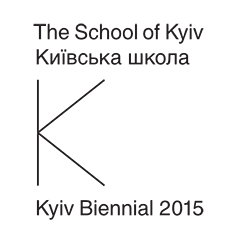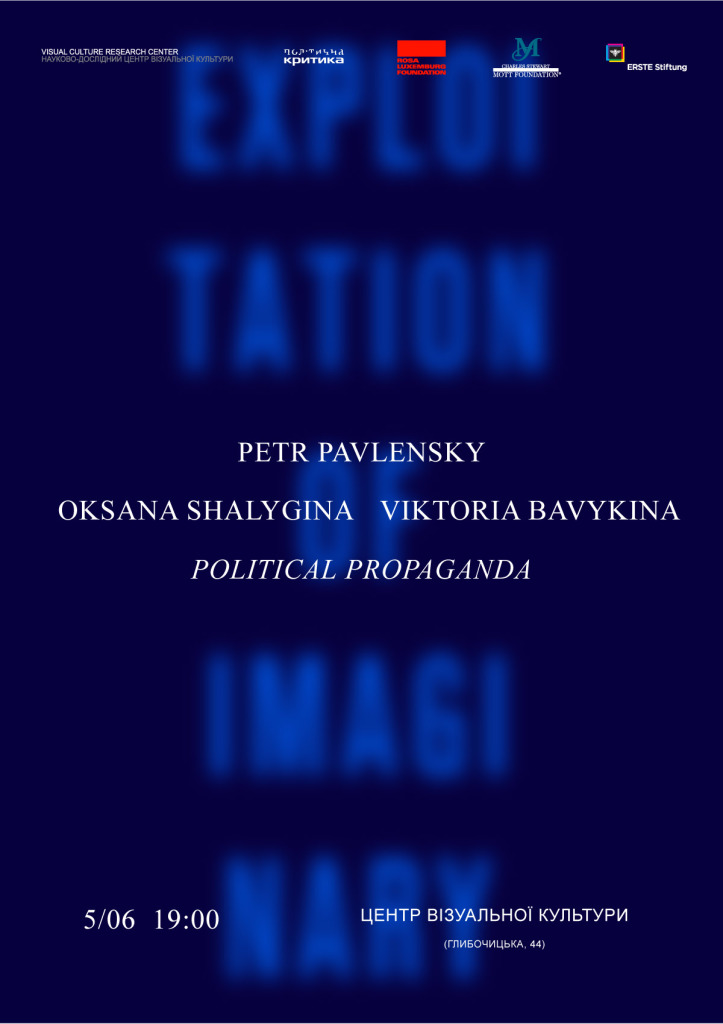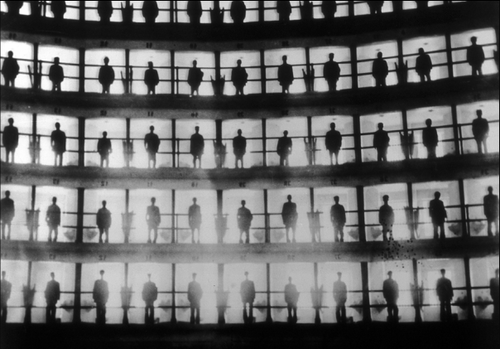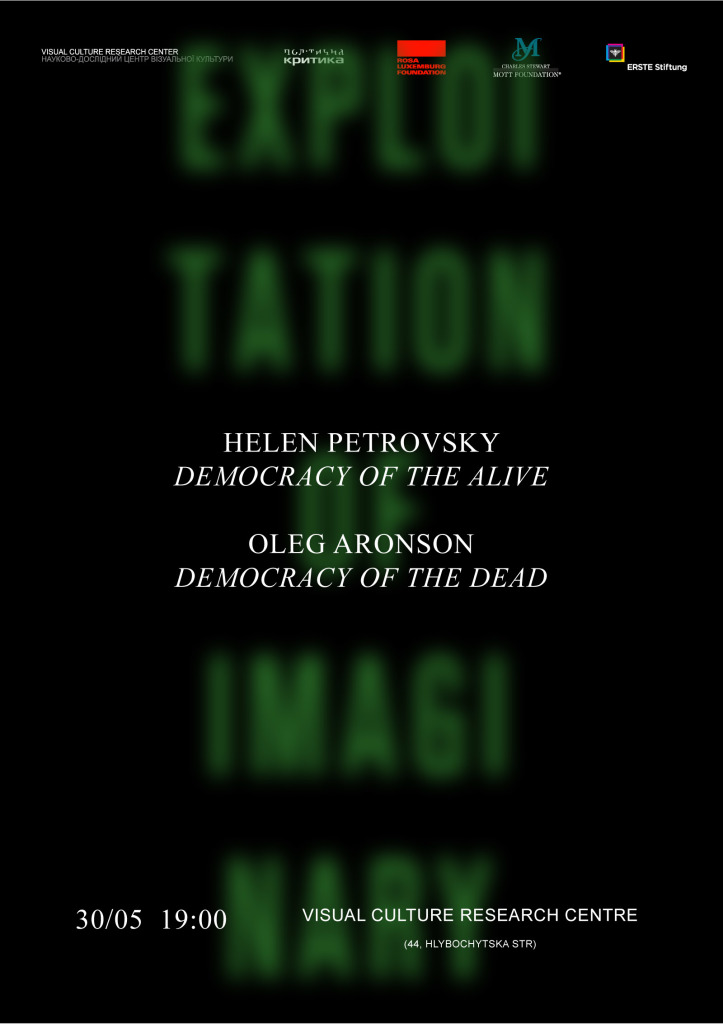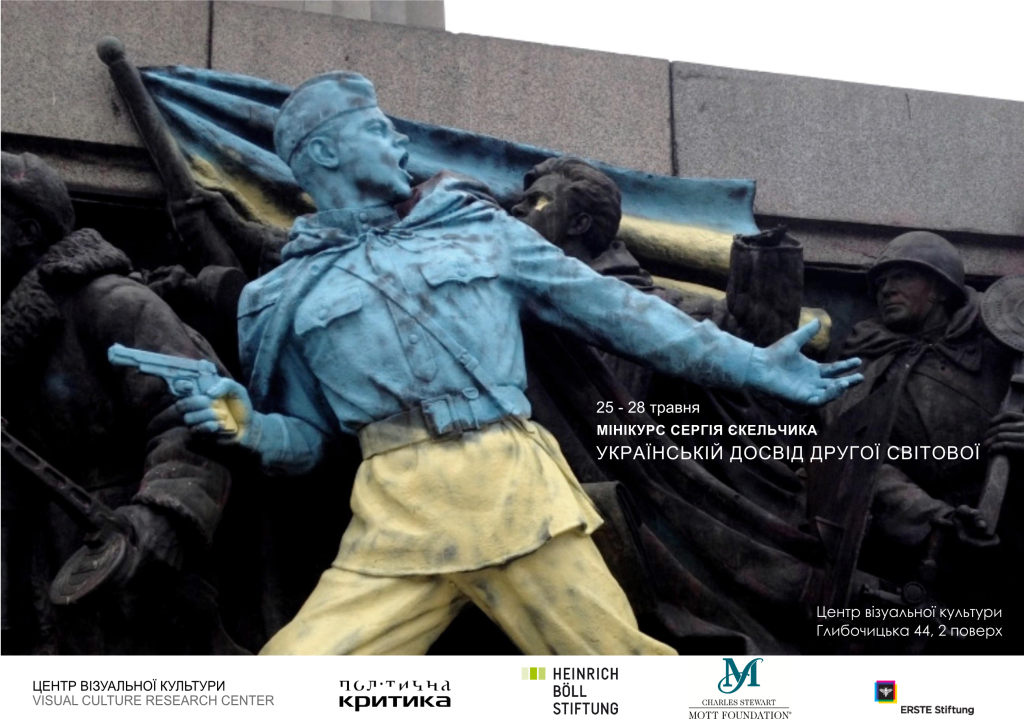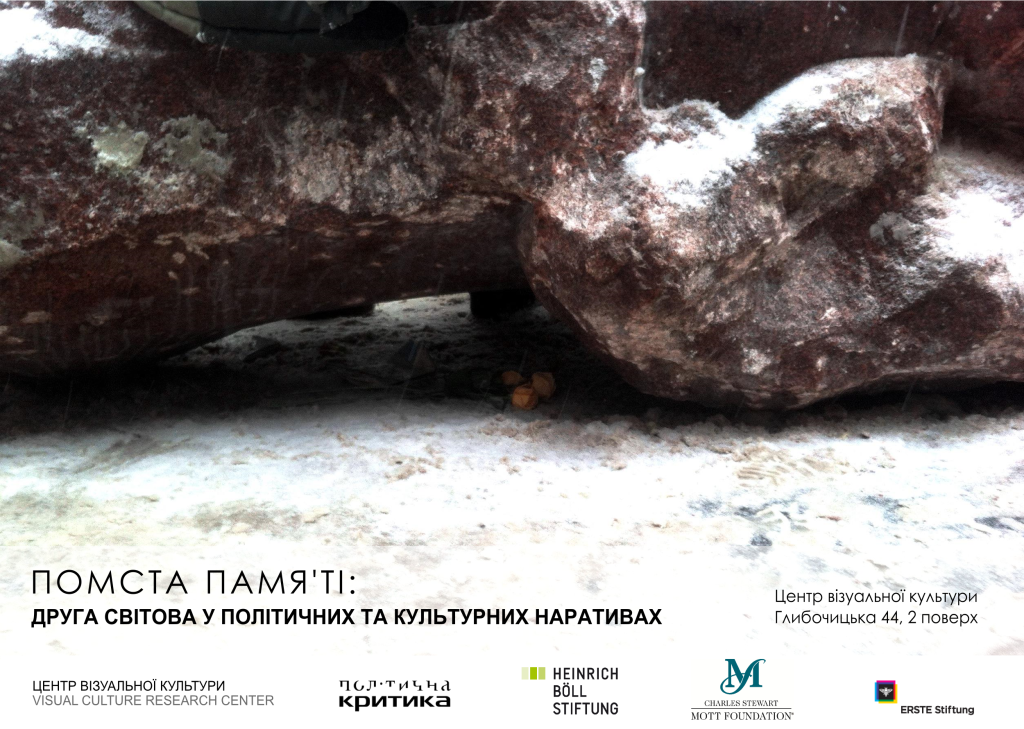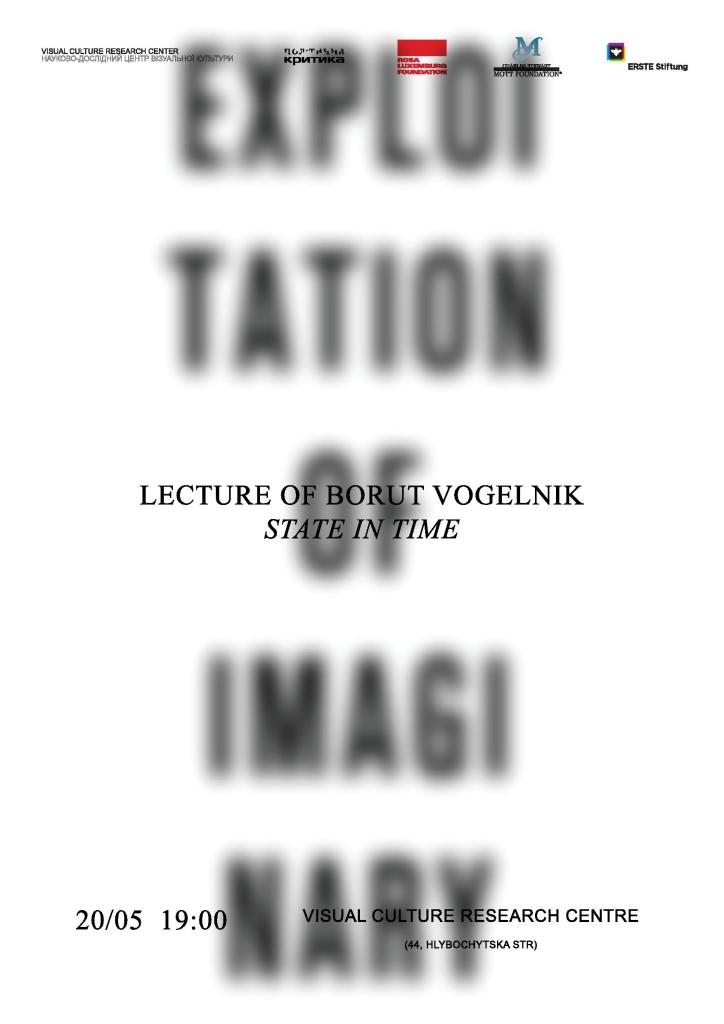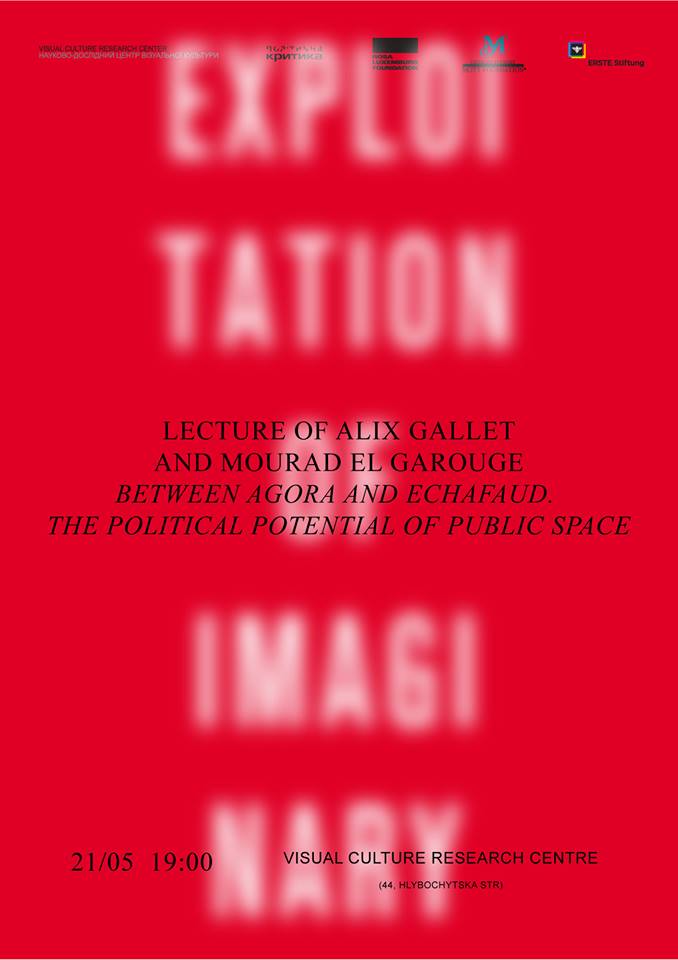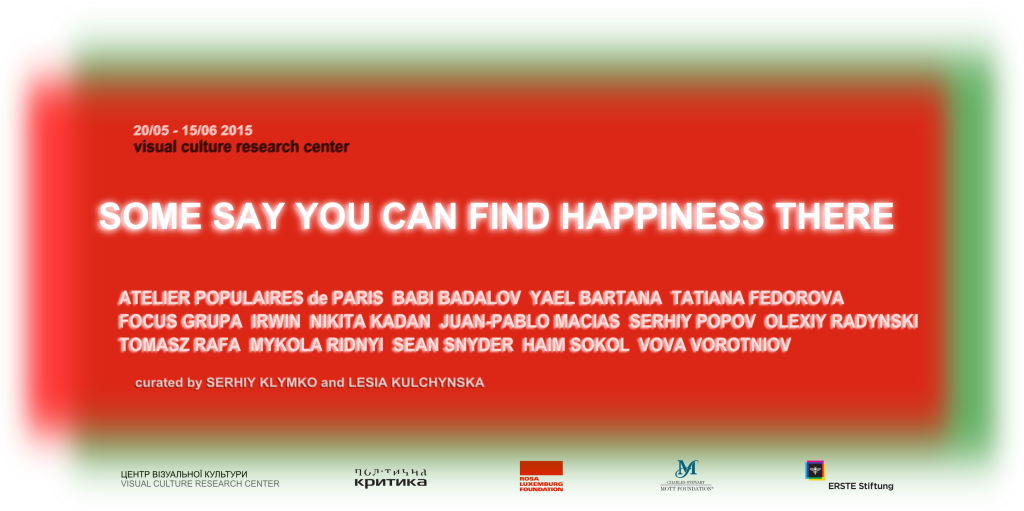Presentation of the publishing project “POLITICAL PROPAGANDA”
Friday, 5 June 2015, 19:00
Visual Culture Research Center (44 Hlybochytska Street (1st floor), Kyiv)
Visual Culture Research Center and Political Critique invite you to the presentation of publishing project “POLITICAL PROPAGANDA”, which will take place on Friday, 5 June, at 19:00.
Oksana Shalygina, Petr Pavlensky and Viktoria Bavykina will present the “POLITICAL PROPAGANDA” publishing house. “POLITICAL PROPAGANDA” is an independent information platform, which covers problems of contemporary art in political context. Particular attention will be drawn to the latest issue of the same-name magazine. “This issue tells the brutal story of victim production plant. Sexual exploitation, free labour, and funding of their possessors is something that the victims are forced to do in the process of reworking”. – PP. The “plant” example and personal life experience will help the editors to explain why is personal always political.
Oksana Shalygina is a publisher and editor-in chief of “POLITICAL PROPAGANDA” publishing house. Petr Pavlensky is an artist. Viktoria Bavykina is a head of “POLITICAL PROPAGANDA” publishing house.
The lecture will take place at Visual Culture Research Center within the frameworks of the exhibition “Some Say You Can Find Happiness There” and “Exploitation of the Imaginary” project (May 20 – June 15, 2015).
Admission is free
The project is supported by Rosa Luxemburg Stiftung
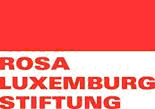
Supported by ERSTE Stiftung and Charles Stewart Mott Foundation
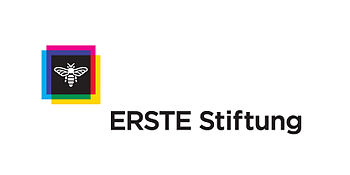
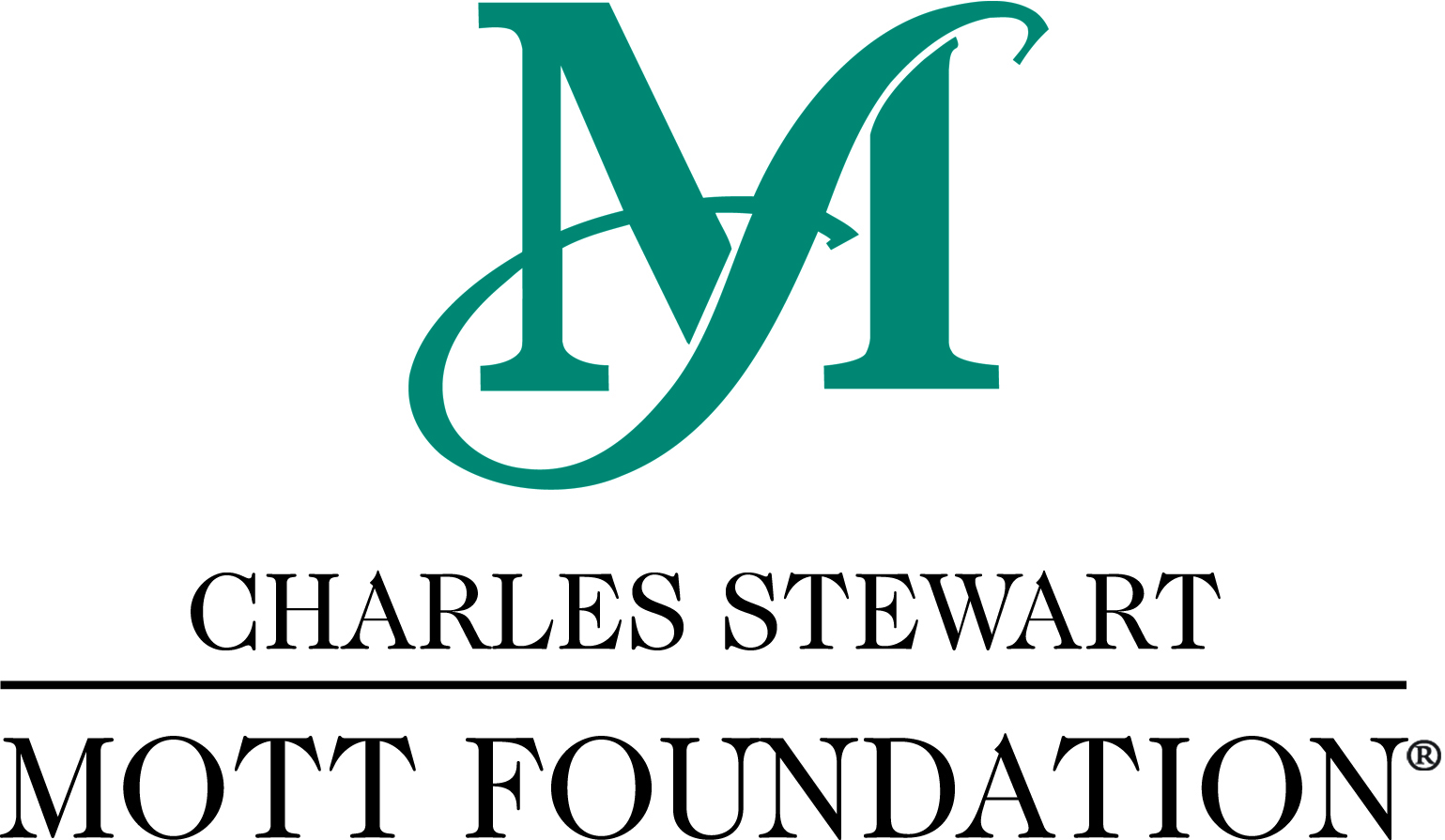
Visual Culture Research Center (VCRC) was founded in 2008 as a platform for collaboration between academic, artistic, and activist communities. VCRC is an independent initiative, which is engaged in publishing and artistic activities, scientific research, organization of public lectures, discussions, and conferences. In 2015 Visual Culture Research Center received the European Cultural Foundation’s Princess Margriet Award.
Visual Culture Research Center (44 Hlybochytska Street (1st floor), Kyiv)
Contacts:
+38096 4929600 (Nataliya Neshevets)
www.facebook.com/vcrc.org.ua
vcrc@vcrc.org.ua
Lecture by Katarzyna Szymielewicz
Thursday, 4 May 2015, 19:00
The Internet after Snowden: Do We Have Something to Hide?
Visual Culture Research Center (44 Hlybochytska Street (1st floor), Kyiv)
On Thursday, 4 June, at 19:00 the lecture by Internet security researcher Katarzyna Szymielewicz will take place at Visual Culture Research Center.
What have we learned from Edward Snowden about contemporary methods of surveillance? What is the problem with protection of privacy in the “society of the spectacle”, where we continually expose our lives to others? What is the role of private capital in the system of control over our communication and life in the network? To which threats on the part of private corporations leads the loss of control over data? Can freedom be the price we pay for security? What is to be done for keeping control over information and freedom in the digital world?
Katarzyna Szymielewicz is a researcher of Internet security, author, and lawyer. She is a Head of Panoptykon Foundation (Warsaw), which deals with the protection of Internet user’s rights. She was one of the initiators of European movement against ACTA agreement.
More information: https://en.panoptykon.org/
Working language – English
Admission is free
On Friday, 5 June, from 10:00 to 14:00 Katarzyna Szymielewicz will hold a workshop on theory and practice of Internet security. Main issues to be discussed during workshop:
– Definition of privacy (what can be considered private / vulnerable?);
– Mapping of contexts in which we publish personal information (work, life in the network, relations with the state); identification of subjects, who have / might have the access to such information, as well as related risks;
– What is the essence of profiling based on our Internet data, and in what way it threatens political activists;
– Review of alternative (secure) communication services.
In order to participate in the workshop, please send the motivation letter to the address vcrc@vcrc.org.ua.
Supported by ERSTE Stiftung and Charles Stewart Mott Foundation


Visual Culture Research Center (VCRC) was founded in 2008 as a platform for collaboration between academic, artistic, and activist communities. VCRC is an independent initiative, which is engaged in publishing and artistic activities, scientific research, organization of public lectures, discussions, and conferences. In 2015 Visual Culture Research Center received the European Cultural Foundation’s Princess Margriet Award.
Contacts:
+38096 4929600 (Nataliya Neshevets)
www.facebook.com/vcrc.org.ua
vcrc@vcrc.org.ua
Presentation of the latest issue of “Siniy Divan” magazine
Sunday, 31 May 2015, 19:00
Presentation of the latest issue of “Siniy Divan” magazine
with participation of
Oleg Aronson and Helen Petrovsky
Visual Culture Research Center (44 Hlybochytska Street (1st floor), Kyiv)
Visual Culture Research Center and Political Critique invite you to the presentation of the latest issue of “Siniy Divan” magazine, which will take place on Sunday, 31 May, at 19:00.
The latest issue of “Siniy Divan” magazine is devoted to the event of Maidan in Ukraine, the notion of contemporary democracy, and exploration of new political topology.
Is democracy, in particular absolute democracy, possible today? Protest movements, which began in 2011 all over the world, as well as events on Maidan pose a problem of direct popular rule. The authors of the issue – Ukrainian, Russian, American, and Italian researchers and philosophers – reflect on the problem of the subject in contemporary protest movements, on political time in which this subject is placed, with which values and why it identifies.
“Siniy Divan” magazine has been published under the editorship of Helen Petrovsky since 2002. The magazine focuses on contemporary philosophy, contemporary art, film and media studies, visual studies etc.
Oleg Aronson is an art historian, film and media theorist, philosopher. He is a fellow researcher at the Institute of Philosophy (Russian Academy of Sciences).
Helen Petrovsky is a philosopher, anthropologist, cultural theorist. She is editor-in-chief of “Siniy Divan” magazine.
Lectures will take place at Visual Culture Research Center within the frameworks of the exhibition “Some Say You Can Find Happiness There” and “Exploitation of the Imaginary” project (May 20 – June 15, 2015).
Admission is free
The project is supported by Rosa Luxemburg Stiftung

Supported by ERSTE Stiftung and Charles Stewart Mott Foundation


Visual Culture Research Center (VCRC) was founded in 2008 as a platform for collaboration between academic, artistic, and activist communities. VCRC is an independent initiative, which is engaged in publishing and artistic activities, scientific research, organization of public lectures, discussions, and conferences. In 2015 Visual Culture Research Center received the European Cultural Foundation’s Princess Margriet Award.
Visual Culture Research Center (44 Hlybochytska Street (1st floor), Kyiv)
Contacts:
+38096 4929600 (Nataliya Neshevets)
www.facebook.com/vcrc.org.ua
vcrc@vcrc.org.ua
Oleg Aronson and Helen Petrovsky
Saturday, 30 May 2015, 19:00
“Democracy of the Dead” and “Democracy of the Alive”
Visual Culture Research Center (44 Hlybochytska Street (1st floor), Kyiv)
Visual Culture Research Center and Political Critique invite you to the lectures by Oleg Aronson and Helen Petrovsky, which will take place on Saturday, May 30, at 19:00.
Democracy is usually understood as a form of political rule. However, even in such terms it is quite unstable, contradictory and looks rather like a social utopia than effective political mechanism. Moreover, democratic rhetoric, which refers to the values of liberty, equality, and justice, became a part of contemporary politics, a way of its self-representation. Meanwhile, we can conceive democracy in a different way – by pointing to some of its manifestations, which are resistant to politics and even incompatible with it. Oleg Aronson and Helen Pertovsky will address these issues in their short lectures – “Democracy of the Dead” (about the relation of democracy to war and formation of mass society) and “Democracy of the Alive” (about the logic of multitude, in which action confronts political imagination).
Oleg Aronson is an art historian, film and media theorist, philosopher. He is a fellow researcher at the Institute of Philosophy (Russian Academy of Sciences).
Helen Petrovsky is a philosopher, anthropologist, cultural theorist. She is editor-in-chief of “Siniy Divan” magazine.
Lectures will take place at Visual Culture Research Center within the frameworks of the exhibition “Some Say You Can Find Happiness There” and “Exploitation of the Imaginary” project (May 20 – June 15, 2015).
Admission is free
The project is supported by Rosa Luxemburg Stiftung

Supported by ERSTE Stiftung and Charles Stewart Mott Foundation


Visual Culture Research Center (VCRC) was founded in 2008 as a platform for collaboration between academic, artistic, and activist communities. VCRC is an independent initiative, which is engaged in publishing and artistic activities, scientific research, organization of public lectures, discussions, and conferences. In 2015 Visual Culture Research Center received the European Cultural Foundation’s Princess Margriet Award.
Visual Culture Research Center (44 Hlybochytska Street (1st floor), Kyiv)
Contacts:
+38096 4929600 (Nataliya Neshevets)
www.facebook.com/vcrc.org.ua
vcrc@vcrc.org.ua
Lecture by Wilfried Jilge
Friday, 29 May 2015, 19:00
Memory of World War II in the Shadow of the “Russkij Mir”
The Politics of History and Collective Remebrance Cultures in Ukraine from Janukovych’s Rule to the War in the Donbass
Visual Culture Research Center (44 Hlybochytska Street (1st floor), Kyiv)
Visual Culture Research Center and Political Critique invite you to a lecture by German historian Wilfried Jilge, which will take place on Friday, May 29, at 19:00.
The central subject of this lecture is the analysis of functions of the politics of history by means of the memory about World War II. Politics of history became a key element in the information warfare unleashed by Russian state controlled mass media against the protests on the Maidan in Kyiv. The central “projection screen” of that information warfare which presented the change of power in Kyiv in February 2014 as an “fascist coup” was the exploitation of a softly modified Soviet myth of the “Great Fatherland’s War”.
But one also has to include factors of Ukraine’s domestic politics as well as the politics of identities of the last years (including the nationalist re-evaluation of the war memory under the presidency of Viktor Yushchenko) in order to precisely understand the effects of the Russian propaganda. Wilfried Jilge argues that these were regional elites that created the basis for separatist attitudes, which were later mobilized by the ideologists of “Russkij Mir”.
Wilfried Jilge is a historian, lecturer at the University of Leipzig and associated researcher at the Center for Governance and Culture in Europe at the University of St. Gallen. He is a specialist in Ukrainian contemporary history and politics. His main fields of research are e.g. nationalism in East and Central Europe, particularly, in Ukraine and Russia, the analysis of the politics of history and identity in post-Soviet Ukraine, especially by means of the memory of World War II, collective and regional remembrance cultures and identities in Ukraine, the history of post-Stalinist Soviet Ukraine as well as political studies on today’s European/German-Ukrainian relations.
Wilfried Jilge also works in the field of political consulting for members of the German and European parliament and has been a member in expert groups working out strategies to stabilize the Ukrainian state during the Russian-Ukrainian crisis.
Admission is free
The lecture will take place as a part of the educational project “Revenge of Memory: World War II in Political and Cultural Narratives”. The project aims to conceptualize World War II discourses, which are perceived through the recent events in Ukraine, to analyze political, rhetorical, and media strategies that use historical experience of the war, as well as to produce new ways of shaping post-war experience.
The project is supported by Heinrich Böll Stiftung (Kyiv)
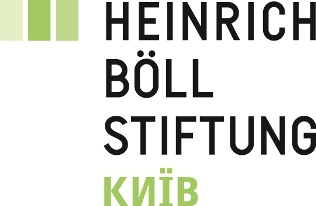
Supported by ERSTE Stiftung and Charles Stewart Mott Foundation


Visual Culture Research Center (VCRC) was founded in 2008 as a platform for collaboration between academic, artistic, and activist communities. VCRC is an independent initiative, which is engaged in publishing and artistic activities, scientific research, organization of public lectures, discussions, and conferences. In 2015 Visual Culture Research Center received the European Cultural Foundation’s Princess Margriet Award.
Visual Culture Research Center (44 Hlybochytska Street (1st floor), Kyiv)
Contacts:
+38096 4929600 (Nataliya Neshevets)
www.facebook.com/vcrc.org.ua
vcrc@vcrc.org.ua
Short course by Serhiy Yekelchyk
Monday – Thursday, 25 – 28 May 2015, 18:30
The Ukrainian Experience of World War II
Visual Culture Research Center (44 Hlybochytska Street (1st floor), Kyiv)
Visual Culture Research Center and Political Critique invite you to a short course by Serhiy Yekelchyk “The Ukrainian Experience of World War II”, which will take place from May 25 to 28 (Monday till Thursday) at 18.30 every day.
The short course aims to outline new approaches to the Ukrainian experience in World War II, using contemporary Western historical scholarship. We will begin with deconstructing of predominate ideas about the war and tracking changes how some narratives replace others, and then we will move on to experiences of ordinary people in wartime, usually hidden by the loud words about courage and sacrifices of the nation. Further, the short course will be focused on relationship between the war and vision of the world in ethnic categories that will allow to see the evolution of the official memory of the war from 1945 until today.
Lecture 1: Narratives of the war.
Lecture 2: Everyday life of the war.
Lecture 3: Nationalization of the war.
Lecture 4: Memory of the war.
Serhiy Yekelchyk is a historian and professor at University of Victoria (Canada). His books include “Stalin’s Empire of Memory: Russian-Ukrainian Relations in the Soviet Historical Imagination” (2004); “Ukraine: Birth of a Modern Nation” (2007), “Ukrainophiles: the World of Ukrainian Patriots of the Late Nineteenth Century” (2010), “Stalin’s Citizens: Everyday Politics in the Wake of Total War” (2014). His latest book about the Maidan and 2013-2014 events in Ukraine is in print.
To enroll, please send an email to vcrc@vcrc.org.ua. You will get readings for the course (scanned pdf files).
The short course will take place as a part of the educational project “Revenge of Memory: World War II in Political and Cultural Narratives”. The project aims to conceptualize World War II discourses, which are perceived through the recent events in Ukraine, to analyze political, rhetorical, and media strategies that use historical experience of the war, as well as to produce new ways of shaping post-war experience.
The project is supported by Heinrich Böll Stiftung (Kyiv)

Supported by ERSTE Stiftung and Charles Stewart Mott Foundation


Visual Culture Research Center (VCRC) was founded in 2008 as a platform for collaboration between academic, artistic, and activist communities. VCRC is an independent initiative, which is engaged in publishing and artistic activities, scientific research, organization of public lectures, discussions, and conferences. In 2015 Visual Culture Research Center received the European Cultural Foundation’s Princess Margriet Award.
Visual Culture Research Center (44 Hlybochytska Street (1st floor), Kyiv)
Contacts:
+38096 4929600 (Nataliya Neshevets)
www.facebook.com/vcrc.org.ua
vcrc@vcrc.org.ua
Lecture by Irina Sandomirskaya
Sunday, 24 May 2015, 19:00
Black Fire on Black Flames:
Corporeal Experience and Political Theory
in Lydia Ginzburg’s “Blockade Diary”
Visual Culture Research Center (44 Hlybochytska Street (1st floor), Kyiv)
Visual Culture Research Center and Political Critique invite you to the lecture by Irina Sandomirskaya, which will take place on Sunday, 24 May, at 19:00.
Critical analysis of the concept of collective memory allows us to see how contemporary academic and political discourse uses collective memory to fetishize and commodify the past and turns it into a symbolic object of commerce and biopolitical management. The blockade successfully resists it, so the entire history of its official memorialization is a history of oblivion and silence of the real experience. The blockade is often presented as something extraordinary, as a state of exception (Giorgio Agamben), a rejection of the law in the broadest sense; thus the blockade becomes incomprehensible and its structures are not being reproduced in other social contexts. “The Blockade Diary” by Lydia Ginzburg, a brilliant theorist of the Leningrad disaster who survived and conceptualized the blockade, has tremendous value for understanding the state of exception as the economy of sense and life, as well as continuity and a deep affinity between “pathology” of the state of emergency and “normal” peacetime.
Irina Sandomirskaya is a scholar of Russian and Soviet literature and language and professor at Södetörn University (Sweden). She is an author of Kniga o rodine. Opyt analiza diskursivnykh praktik (2001) and Blokada v slove: ocherki kriticheskoi teorii i biopolitiki iazyka (2013).
Admission is free
Discussion will take place within the frameworks of educational project “Revenge of Memory: World War II in Political and Cultural Narratives”, devoted to conceptualization of World War II discourse, actualized by recent events in Ukraine, analysis of political, rhetorical, media strategies of instrumentaliation of the historical war experience, production of ways of working with post-war experience.
The project is supported by Heinrich Böll Stiftung (Kyiv)

Supported by ERSTE Stiftung and Charles Stewart Mott Foundation


Visual Culture Research Center (VCRC) was founded in 2008 as a platform for collaboration between academic, artistic, and activist communities. VCRC is an independent initiative, which is engaged in publishing and artistic activities, scientific research, organization of public lectures, discussions, and conferences. In 2015 Visual Culture Research Center received the European Cultural Foundation’s Princess Margriet Award.
Visual Culture Research Center (44 Hlybochytska Street (1st floor), Kyiv)
Contacts:
+38096 4929600 (Nataliya Neshevets)
www.facebook.com/vcrc.org.ua
vcrc@vcrc.org.ua
Lecture by the member of IRWIN group Borut Vogelnik
Friday, 22 May 2015, 19:00
Visual Culture Research Center (44 Hlybochytska Street (1st floor), Kyiv)
Visual Culture Research Center and Political Critique invite you to the lecture by the member of IRWIN group Borut Vogelnik, which will take place on Friday, 22 may, at 19:00.
The NSK state came into being in 1992 as a result of the transformation of the Neue Slowenische Kunst (New Slovenian Art) collective into the NSK State in Time. With the collapse of socialism in the beginning of the 1990s and the subsequent emergence of a multitude of new states, some of which, among them Slovenia, achieved the status of an independent state for the fist time ever in history, NSK too objectified itself in the form of a state. Instead of to a territory, however, NSK assigned the status of its state to thinking, which alters its boundaries in accordance with the movements and changes of its symbolic and physical collective body.
So far, several thousand people have applied for and obtained NSK passports and thereby become citizens of the NSK State in Time, while also retaining their previous citizenship. Most of them come from the developed countries of Western Europe or the USA, and thus the majority of NSK’s population is from the so-called First World. Their reasons for attaining NSK citizenship are linked primarily to their understanding of and participation in the field of contemporary art. However, the largest number of passports was issued in Sarajevo at the end of the war in 1995. At that time, the citizens of Bosnia and Herzegovina had serious difficulty travelling outside their country. Several years ago, applications for the NSK passport began coming from Africa, from Nigeria in particular. It seems likely that, in the Third World, NSK passports have ceased to be artifacts and have become useful documents. What is interesting is why, where, for whom and how they are useful.
Borut Vogelnik is Slovenian artist, member of IRWIN group and Neue Slowenische Kunst art collective. He is Assistant Professor at the Academy of Visual Arts in Ljubljana.
Lecture will take place at Visual Culture Research Center within the frameworks of the exhibition “Some Say You Can Find Happiness There” and “Exploitation of the Imaginary” project (May 20 – June 15, 2015).
Working language – English
Admission is free
The project is supported by Rosa Luxemburg Stiftung

Supported by ERSTE Stiftung and Charles Stewart Mott Foundation


Visual Culture Research Center (VCRC) was founded in 2008 as a platform for collaboration between academic, artistic, and activist communities. VCRC is an independent initiative, which is engaged in publishing and artistic activities, scientific research, organization of public lectures, discussions, and conferences. In 2015 Visual Culture Research Center received the European Cultural Foundation’s Princess Margriet Award.
Visual Culture Research Center (44 Hlybochytska Street (1st floor), Kyiv)
Contacts:
+38096 4929600 (Nataliya Neshevets)
www.facebook.com/vcrc.org.ua
vcrc@vcrc.org.ua
Between Agora and Scaffold: Political Potential of Public Space
Thursday, 21 May 2015, 19:00
Visual Culture Research Center (44 Hlybochytska Street (1st floor), Kyiv)
Visual Culture Research Center and Political Critique invite you to the lecture and presentation of work Gemonian Scaffold by Alix Gallet and Mourad El-Garouge (Ateliers Populaires de Paris), which will take place on Thursday, 21 May, at 19:00.
During their lecture Alix Gallet and Mourad El-Garouge will tell about their work Geminian Scaffold, presented at the international exhibition “Some Say You Can Find Happiness There” at Visual Culture Research Center, and its historical contextualization.
The Gemonian Scaffold is a structure designed for the public space and inspired by French revolutionary carpenter Sieur Gérard. The title of this work refers to notorious Scalae Gemoniae – Gemonian stairs from the times of Roman Empire, which was used for public executions and demonstration of bodies. Another important analogy between the title of this object and its function is the similarity between words “scaffold” and “scaffoldings”. Gemonian Scaffold is conceived as a temporary agora made of standard elements of scaffoldings, which serve as a supporting structure at construction sites.
The Gemonian Scaffold is meant to facilitate public debates and gatherings of all kinds and in any context, depending on community needs. While addressing questions of political nature of public space, the Gemonian Scaffold remains a functional structure to be used by society.
Alix Gallet is member of Ateliers Populaires de Paris. She studied media design at the Design Academy of Eindhoven and fashion at the ESAA Duperré in Paris. Her synergistic approach is close to fiction design and research trends. Gallet’s most recent projects include issues as varied as biometric identification, behavioral packing unit online and gamification interactions.
Mourad El-Garouge is member of Ateliers Populaires de Paris. Since 2012, he has been project manager at the Palais des Congrès de Montreuil, where he coordinates the contemporary art fair “Les Hivernales”. In 2014, he created Artefiz, an independent publishing house, as well as cultural promotion association, “L ‘Art est vivant”.
Ateliers Populaires de Paris (APP) is a cooperative office operating in construction and design. It was created in Paris in October 2014 by five professionals active in the fields of architecture, cultural research, urban planning, education, and communication. APP offers services for territorial studies, art research, development of architectural projects and media design.
Presentation will take place at Visual Culture Research Center within the frameworks of the exhibition “Some Say You Can Find Happiness There” and “Exploitation of the Imaginary” project, which lasts from May 20 until June 15, 2015.
Admission is free
The project is supported by Rosa Luxemburg Stiftung

Supported by ERSTE Stiftung and Charles Stewart Mott Foundation


Visual Culture Research Center (VCRC) was founded in 2008 as a platform for collaboration between academic, artistic, and activist communities. VCRC is an independent initiative, which is engaged in publishing and artistic activities, scientific research, organization of public lectures, discussions, and conferences. In 2015 Visual Culture Research Center received the European Cultural Foundation’s Princess Margriet Award.
Visual Culture Research Center (44 Hlybochytska Street (1st floor), Kyiv)
Contacts:
+38096 4929600 (Nataliya Neshevets)
www.facebook.com/vcrc.org.ua
vcrc@vcrc.org.ua
Exhibition “SOME SAY YOU CAN FIND HAPPINESS THERE”
Wednesday, 20 May 2015, 19:00
Visual Culture Research Center (44 Hlybochytska Street (1st floor), Kyiv)
Visual Culture Research Center and Political Critique invite you to the exhibition “Some Say You Can Find Happiness There” at Visual Culture Research Center (Kyiv, Ukraine), which will take place from 20 May till 15 June 2015. Opening: Wednesday, 20 May, at 19:00.
Political map of the world may be understood as a museum of collective fantasies, which once gained a piece of territory for their realization. Some of them died, failing the reality-test, but continue haunting their demesnes like specters, some gave up their spaces to other dreams, some carry out expansion claiming new territories. However, there is also a map of imaginary world for the dreams of communities that have vanished or, on the contrary, are still emerging and keep struggling for their place in reality.
During the recent year our ideas about the state that used to seem obvious, have transformed into open questions. Maidan, which was compared to a utopian republic, questioned relations between the society and the state, and generated the surge of projects for its transformation. The change in the familiar contours happened before our very eyes, the common visual image of the Ukrainian state is now in conflict with its actual borders, and hundreds of thousands of people woke up in a different country. We witnessed how political utopias, multiplied by a potential of contemporary media, are being implemented, increasing the number of views in social networks, as well as the number of destroyed human lives.
Open questions demand answers. We have to look at the map of contemporary political imagination in order to see the ways we follow in search of the common happiness, in order to reconsider concepts and images, which today’s political relations, as well as our dreams and fantasies, are based on.
Participants: Atelier Populaires de Paris (France), Babi Badalov (Azerbaijan-France), Yael Bartana (Israel), Tatiana Fedorova (Moldova), Focus Grupa (Croatia), IRWIN Group (Slovenia), Nikita Kadan (Ukraine), Juan-Pablo Macías (Mexico), Serhiy Popov (Ukraine), Oleksiy Radynski (Ukraine), Tomáš Rafa (Slovakia), Mykola Ridnyi (Ukraine), Sean Snyder (USA), Haim Sokol (Russia), Vova Vorotniov (Ukraine).
Curated by Serhiy Klymko and Lesia Kulchynska
The exhibition will take place within the frameworks of the project “Exploitation of the Imaginary”, dedicated to the research of political imagination in the age of its mechanical reproduction and the capability of art to fight for its right to structure society.
Admission is free
The project is supported by Rosa Luxemburg Stiftung

Supported by ERSTE Stiftung and Charles Stewart Mott Foundation


Visual Culture Research Center (VCRC) was founded in 2008 as a platform for collaboration between academic, artistic, and activist communities. VCRC is an independent initiative, which is engaged in publishing and artistic activities, scientific research, organization of public lectures, discussions, and conferences. In 2015 Visual Culture Research Center received the European Cultural Foundation’s Princess Margriet Award.
Visual Culture Research Center (44 Hlybochytska Street (1st floor), Kyiv)
Contacts:
+38096 4929600 (Nataliya Neshevets)
www.facebook.com/vcrc.org.ua
vcrc@vcrc.org.ua

